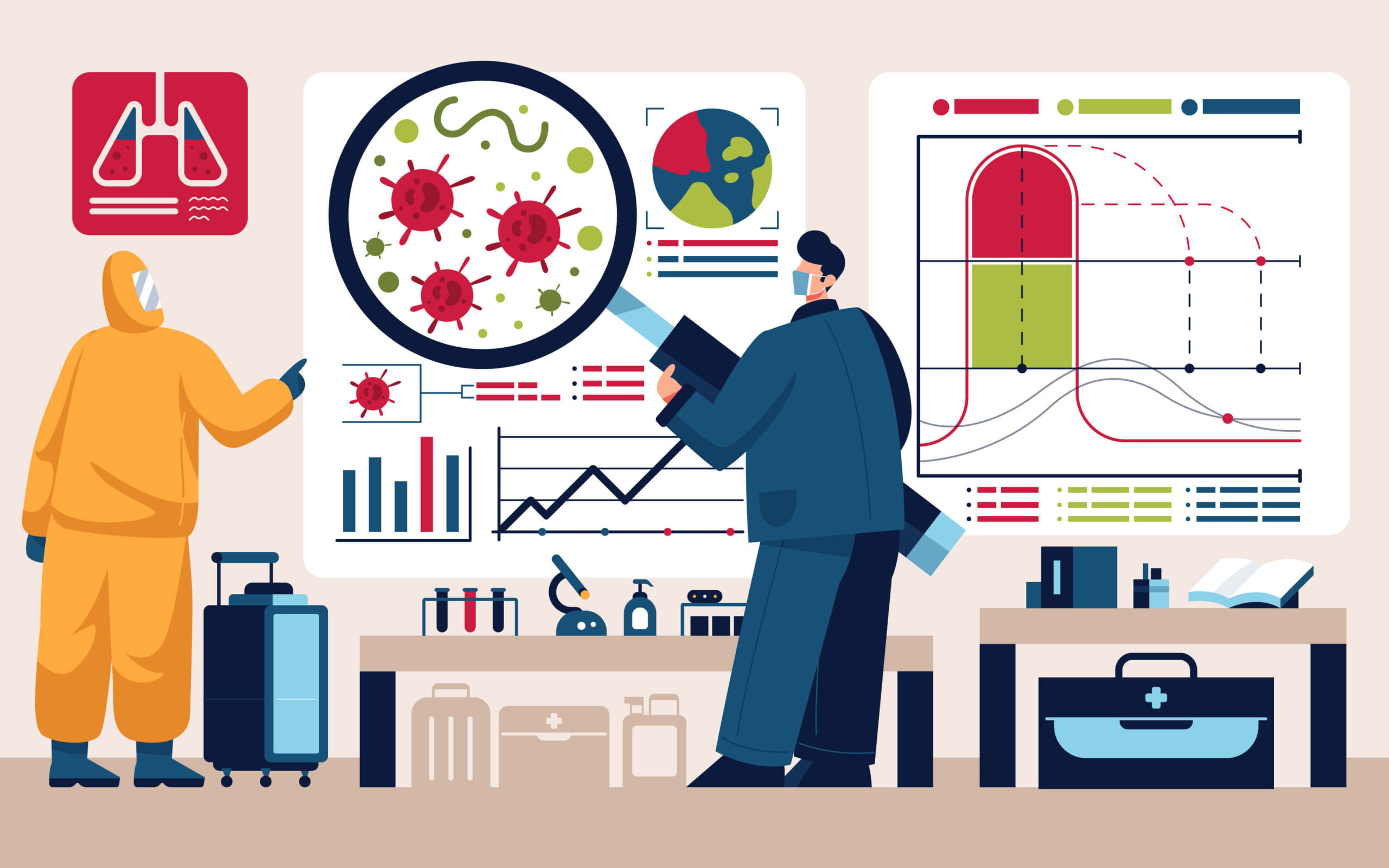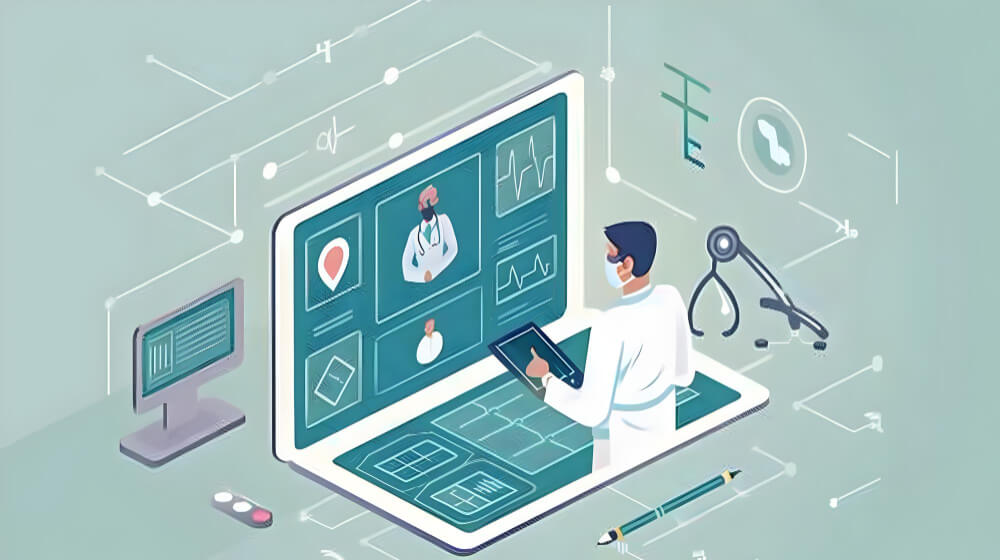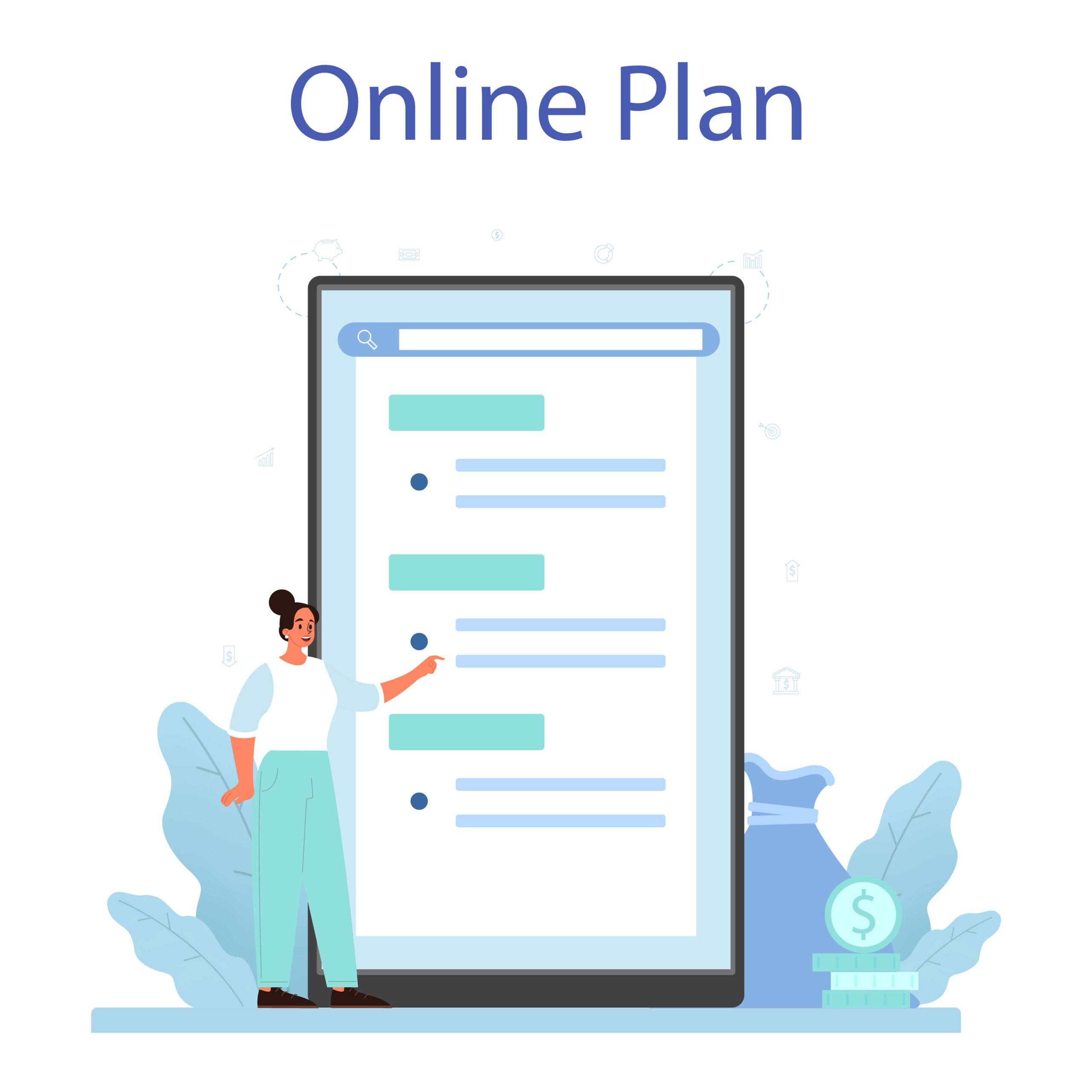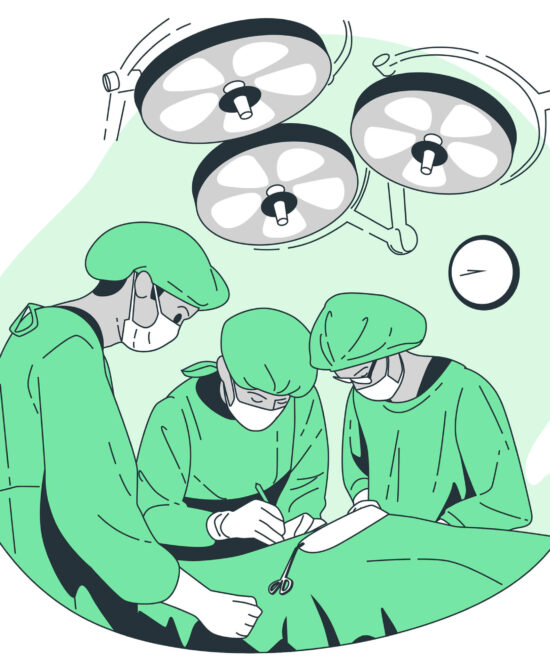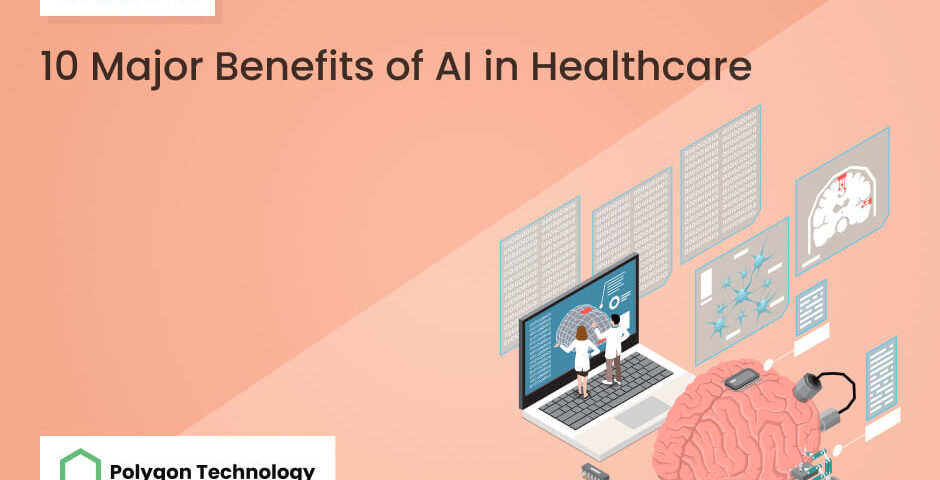
10 Major Benefits of AI in Healthcare: What You Should Know
10 Major Benefits of AI in Healthcare: What You Should Know

Md. Rabiul Alam Sarker
Rabiul Alam brings a blend of manual and automation expertise to the world of software testing. With a deep understanding of the entire testing life-cycle for dynamic web and mobile applications. His experience spans popular testing frameworks like Selenium, TestNG, and Appium. Additionally, he possesses hands-on knowledge of DevOps tools like Docker, ELK stack, and CI/CD pipelines.

Md. Asad Chowdhury Dipu

The benefits of artificial intelligence in healthcare are transforming the industry at an unprecedented pace. According to Statista, the AI healthcare market, valued at $11 billion in 2021, is expected to reach $187 billion by 2030. This explosive growth is the result of advanced machine learning algorithms, increased data access, affordable hardware, and the widespread adoption of 5G technology.
AI’s ability to rapidly analyze vast amounts of health data—from patient records to genetic information—is revolutionizing how medical providers, hospitals, and pharmaceutical companies operate.
In today’s discussion, we will explore the top 10 major benefits of AI in the healthcare industry. We will showcase how this technology is enhancing patient care, improving efficiency, and paving the way for future innovations.
How Does Artificial Intelligence Work in the Healthcare Industry?
Artificial Intelligence, or AI, in short, can perform tasks that traditionally rely on human intelligence. These tasks include learning, problem-solving, and decision-making. This is how it is revolutionizing the healthcare industry.
The power of AI in healthcare comes from sophisticated algorithms. AI-based algorithms analyze and process data from various sources, like text, images, audio, and video. These algorithms detect patterns and connections that were previously difficult to uncover.
One key component of AI is machine learning, which involves algorithms that can learn from vast amounts of data. Thanks to this learning process, machines can improve their performance over time without being explicitly programmed for each task.
Apart from machine learning, the following types of algorithms play crucial roles in healthcare.
- Deep Learning Algorithms: These are specialized for image and speech recognition. These are invaluable in diagnosing diseases from medical imaging or transcribing patient interactions.
- Natural Language Processing (NLP) Algorithms: These algorithms comprehend and generate human language. They assist in interpreting clinical notes and automating documentation. They can even provide conversational AI for patient interaction.
- Computer Vision Algorithms: These interpret visual data, such as analyzing medical images and identifying abnormalities. They can also recognize facial features for patient identification.
- Reinforcement Learning Algorithms: These are used to train autonomous systems to make a series of decisions. These are useful for personalized treatment plans and robotic surgery.
AI’s impact on healthcare is transformative. It has the potential to automate repetitive tasks. So, healthcare professionals who use AI can focus more on patient care. For instance, AI can help in the early diagnosis of diseases. It can quickly analyze medical images and identify signs of illness that might be missed by the human eye. In disease management, AI can do the following tasks.
- Predict outbreaks
- Track disease progression
- Suggest the best treatment options based on patient data
Moreover, AI accelerates medical research by analyzing vast datasets much faster than traditional methods. So, it can help in identifying potential new drugs and treatments. As AI technology advances, its role in healthcare will continue to expand. No doubt, it will drive significant improvements in patient care, disease management, and medical research.
10 Main Benefits of Artificial Intelligence in Healthcare We See Today
Artificial Intelligence (AI) is already making massive strides in the healthcare industry. Since its invention, AI has been offering numerous benefits to enhance both patient care and medical services.
Here are some of the major advantages of AI we are witnessing today:
01. Enhanced Diagnostic Accuracy
AI-powered tools can analyze medical images and data with remarkable precision. Using such tools, doctors can identify conditions earlier and more accurately. Early detection is crucial for successful treatment outcomes. AI can detect many diseases, like cancer, where early intervention can save lives.
02. Increased Accessibility
Nowadays, healthcare specialists use AI-driven wearables, sensors, and other technologies. So, patients can receive care no matter where they are. These devices can monitor vital signs and track health metrics. They can even alert healthcare providers if there are any concerning changes. This is particularly beneficial for patients in remote areas or those who have difficulty accessing traditional healthcare facilities.
03. Improved Data Management
AI has the power to manage and organize vast amounts of medical data. So, it can ensure that healthcare professionals have quick access to relevant information. This easy access to comprehensive patient data supports informed clinical decisions. This will lead to better personal care and treatment plans.
04. Enhanced Predictive Analytics
AI can analyze vast amounts of data in a short time. With this ability of AI, healthcare providers can identify trends. Plus, they can predict disease outbreaks with greater accuracy. This predictive power enables early interventions, which can control and prevent the spread of diseases. So, AI contributes to improving overall public health.
05. Personalized Treatment Plans
AI can tailor treatment plans to individual patients by considering genetic, clinical, and lifestyle factors. This personalized approach ensures that patients receive the most effective care for their unique conditions, leading to better health outcomes and more efficient use of medical resources.
06. Increased Surgical Accuracy
In this modern era, we can see various AI-driven robotic systems. They assist surgeons during procedures. These advanced systems improve surgical outcomes, shorten recovery times, and minimize complications. Ultimately, they lead to safer and more effective surgeries. This way, AI enhances precision and reduces the risk of human error.
07. Improved Patient Engagement
AI-powered applications offer personalized care recommendations. Also, they provide educational content tailored to individual patients. This enhanced engagement helps patients better understand their health conditions and treatments. This can result in improved health outcomes and patient satisfaction.
08. Cost Reduction and Administrative Efficiency
AI automates various administrative tasks, such as appointment scheduling and billing. It is also used for claim processing. By streamlining these workflows, healthcare providers can reduce operational costs and improve efficiency. As a result, staff can focus more on patient care rather than paperwork.
09. Time and Resource Savings
AI can also automate vital processes in the healthcare sector. These processes are related to data entry and medical necessity determination. This automation frees up medical professionals’ time. Therefore, they can focus on assessing and diagnosing patients.
Moreover, AI accelerates healthcare operations. So, it can save precious productivity hours and significantly reduce healthcare costs. This efficiency is crucial in a sector where time is directly linked to money.
10. Reduced Physician Stress
As said earlier, AI automates time-consuming tasks and organizing operations. This is how AI alleviates the stress faced by physicians. This streamlining of procedures allows medical professionals to manage their workload more effectively. By reducing burnout, AI improves job satisfaction. As AI assists with explaining diagnoses and other complex tasks, physicians can experience a significant stress reduction.
Future and Potential of AI in Healthcare
AI shows a vast potential to enhance patient care and streamline medical operations. So, clearly, the future of Artificial Intelligence in healthcare is incredibly promising. Here is an encouraging look at what lies ahead:
Reducing Human Error
AI has the potential to reduce human error on a greater scale. This is also applicable in the healthcare sector. By analyzing medical images, X-rays, and scans with remarkable precision, AI can assist doctors in diagnosing medical conditions more accurately. This heightened accuracy ensures that patients receive timely and appropriate treatments. Ultimately, AI will improve health outcomes.
Supporting Medical Professionals
AI tools are evolving to assist medical professionals and staff in various ways. These tools can automate routine tasks, like answering phones and scheduling appointments. Additionally, AI-powered tools can analyze population health trends. By freeing up valuable time for healthcare workers, AI allows them to focus on providing more effective and compassionate face-to-face care to patients.
24/7 Patient Services
AI-powered applications can provide continuous support to patients around the clock. Nowadays, chatbots are answering patient inquiries. Plus, AI-powered wearable devices are monitoring vital signs. Overall, AI ensures that patients have access to essential services at any time. So, this continuous support enhances patient satisfaction.
Innovative Future Applications
AI technology is continuously evolving. So, we can expect even more innovative applications in healthcare. Future AI tools might further automate or augment the work of clinicians, allowing them to dedicate more time to patient care.
Moreover, these advancements in AI might include personalized treatment plans based on a patient’s unique genetic makeup, lifestyle, and clinical history. This will lead to more effective and tailored healthcare solutions.
Is There Any Limitation to AI in Healthcare?
Although AI is modernizing healthcare, we have to remember that it has limitations. There are many areas where AI still relies on human oversight and faces challenges. Often, we can notice the following limitations of AI.
Requires Human Monitoring
AI has made significant strides, but human oversight remains crucial. For instance, while AI-driven surgical robots operate with precision, they lack the empathy and intuition that health practitioners provide.
Doctors can observe subtle behavioral cues and symptoms that AI might miss. They are still required for the diagnosis and prevention of complications. As AI technology evolves, collaboration between healthcare professionals and tech experts is vital to enhance its effectiveness and reliability.
Mistakes Could Still Occur
AI depends heavily on vast amounts of diagnostic data. When there is limited data on specific illnesses, demographics, or environmental factors, the risk of misdiagnosis increases. This is particularly concerning when prescribing medications, as missing information about certain populations’ reactions can lead to ineffective or harmful treatments. While AI continuously improves, addressing these data gaps remains a challenge.
Might Neglect Social Factors
Often, AI systems focus on physical health conditions but might overlook social, economic, and historical factors that influence patient care. For example, an AI might recommend a particular care center based solely on medical criteria. It may not consider a patient’s financial constraints or personal preferences.
Moreover, privacy regulations can limit the data hospitals can access. This will impact AI’s ability to provide comprehensive care recommendations.
Vulnerable to Security Threats
AI systems are vulnerable to cybersecurity threats. As AI becomes more sophisticated, so do the tactics of cybercriminals. Offensive AI, which uses AI to enhance cyberattacks, poses a growing threat. So, confirming robust cybersecurity measures is a must. It can protect sensitive medical data and maintain the integrity of AI systems in healthcare.
Wrapping Up the Benefits of AI in Healthcare
If you have come this far, you should have realized that the benefits of artificial intelligence in healthcare are vast. Also, they have transformative powers. By delivering these benefits, AI is enhancing diagnostic accuracy and streamlining administrative tasks.
However, to fully enjoy these benefits, the healthcare sector must address significant challenges, particularly around data. They must use sufficient and well-represented data and a standardized data infrastructure. Additionally, they need robust systems to protect patient confidentiality and consent.
As the industry continues to digitize and collaborate, the true potential of AI in healthcare will become a reality. Ultimately, AI will present us with improved patient outcomes and more efficient healthcare systems.
